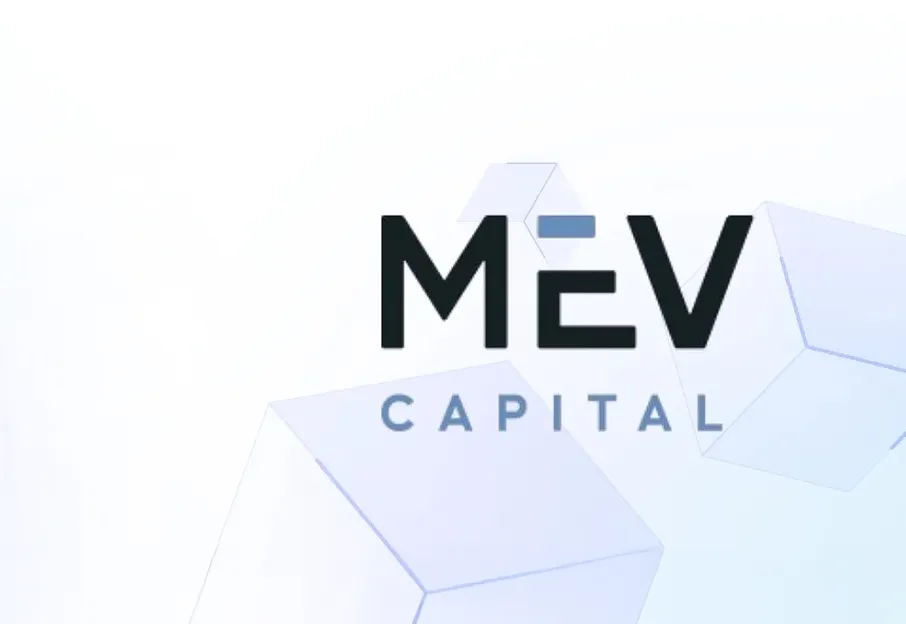Fordefi lets us shift capital to new chains without adding friction or losing oversight. Our next step is to automate those moves in real time and open our admin quorum to other Fordefi users, so they can tap a licensed desk while keeping full custody of their assets
MEV Capital is a digital asset and risk management firm with almost 1B+ in AUM that uses quantitative, market-neutral strategies for institutional and B2B clients. The firm curates some of the largest vaults on Morpho and Midas, including the second-largest ETH and stable-coin vaults on Morpho.
In 2025, MEV Capital set out to scale these strategies to every major L2, Solana, and Sui while giving end-clients tighter custody controls and more granular transaction governance. However, their multi-sig wallet stack required clients to co-sign every action, even low-value reward claims, creating execution delays and operational friction.
The Challenge
MEV Capital’s DeFi strategies were scaling fast, touching more protocols and chains every week. Two pain points quickly surfaced:
- Signature bottlenecks. “Low-significance” tasks, signing a message, claiming rewards, and resizing a position, couldn’t go through until every end-client signer was awake and available.
- Multi-chain sprawl. As strategies expanded to Solana, Sui, and the latest L2s, each new network required a fresh wallet address and a capital bridge, multiplying operational overhead and risk.
Why MEV Capital Switched to Fordefi
After testing Fordefi in live trading sessions, MEV Capital moved its fund and Separately Managed Account (SMA) flows onto the platform. The switch addressed the two structural frictions in their old stack and gave clients stronger custody guarantees.
1. Policy-driven authorization replaces blanket co-signing
Under the old multi-sig flow, even trivial actions like air-drop claims, reward harvesting, and minor position tweaks still demanded every client signature, creating approval fatigue. Fordefi lets MEV Capital tag those low-materiality calls so they auto-execute once simulated, while transfers above a defined threshold still route to a human quorum for review. Routine work proceeds without delays; governance remains intact for high-value moves.
2. A “vault-garden” policy model that widens over time
Client relationships begin at the restrictive end of the spectrum: only pre-whitelisted protocols or tokens are allowed. As trust builds, MEV Capital expands the whitelist one asset or contract at a time, an approach they call “growing the garden.” The spectrum between full custody and full delegation gives each client a bespoke governance posture.
3. Unified, chain-agnostic console for every liquidity venue.
Capital now moves directly between Ethereum, Solana, Sui, and L2 networks under a single organization. The need to spin up new multisig wallets or bridge assets each time a chain launches has disappeared, cutting operational overhead and bridge risk.
4. Client-retained key share secures business continuity
Fordefi’s two-of-two MPC splits signing authority between Fordefi and the client. The client keeps its share locally and, if desired, stores an encrypted backup with an independent recovery agent. Either way, the client always controls one share, so funds stay accessible even if a service provider is offline.
Together, these capabilities have turned what used to be a manual, chain-by-chain process into a single, policy-driven workflow that scales with MEV Capital’s strategies and with each client’s risk tolerance.
A Look at Vault Performance Powered by Fordefi Collaborative Wallets
Already one of the most active managers on-chain, MEV Capital adopted Fordefi to streamline its workflows and remove signer bottlenecks. With the new infrastructure in place, the firm continues to run the largest stable-coin position and a top-three ETH position on Morpho, while a joint vault with Midas has grown from $250K at launch to $80M.Those results rest on a custody model that combines client-held key shares with Fordefi’s Collaborative Wallets — a structure that lets capital move at execution speed while end-investors keep ultimate control.
Here’s how it works:
- LPs and funds keep the keys. Each limited partner holds its own MPC key share, so ultimate custody never leaves the investor’s control.
- MEV Capital acts as an admin, not a custodian. The trading desk receives a single “admin” share that lets its ten-person team propose policy changes and execute day-to-day transactions — but that share counts as one vote inside a broader quorum.
- Advanced admin quorum (3-of-4). Policy changes or structural actions require three of four signatures: the LP’s key, MEV Capital’s admin share, and at least one additional LP or designated oversight signer. This prevents any party from colluding to alter governance unilaterally.
- Execution speed without governance bottlenecks. Routine, low-materiality calls follow pre-agreed rules and clear instantly, while anything that changes risk posture flows through the 3/4 quorum, preserving investor oversight.
By letting LPs retain custody while MEV Capital supplies professional trading operations inside a controlled quorum, Collaborative Wallets have delivered both rapid execution and the governance assurances fiduciary investors demand — driving vault growth that outpaces competitors still constrained by rigid, signer-heavy setups.
The net effect: faster execution, zero custody ambiguity, and vault growth that outpaces competitors still tied to rigid, signer-heavy infrastructure.
Looking Ahead
MEV Capital has emerged as one of the pioneers of on-chain asset management. Showing that it’s possible to keep institutional-grade governance and still move at DeFi speed. In the second half of 2025, the team will turn its attention to automating cross-chain rebalancing, so capital shifts the moment yield migrates, while extending the “vault-garden” policy framework to new institutional mandates. Just as important, MEV Capital is opening its admin-quorum service to the wider Fordefi network, giving any client the option to tap a licensed fund desk for strategy execution without ever losing custody or transparency.
Stay tuned! This story kicks off a short series on Fordefi Collaborative Wallets and the new ways our users are working together on-chain. Next up: how Midas and Re7 are using the same framework to offer secure, custody-retaining strategies to their own LPs.




























